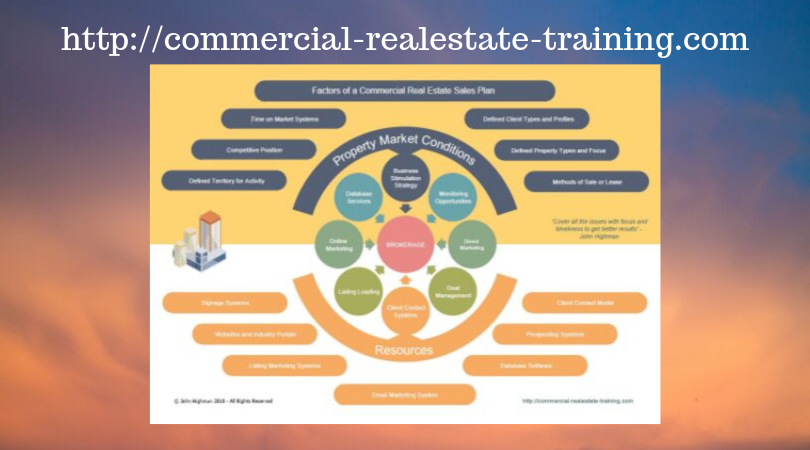Critical Business Skills in Commercial Real Estate Brokerage Today
The essential business skill that agents need today as we move ahead is that of putting people and properties together. It is a matter of finding and putting transactions together, along with supporting local area information. We can research and optimise local knowledge for that.
Converse and Question
Conversations and connections will help you find both the transaction opportunities and the people to place into the activity. If there was one ‘golden rule’ to the real estate business now and for the foreseeable future, it is that of talking to people regularly. Use the telephone for that.
The Methodical Approach
So, all of this is centred around local area research and methodical ongoing contact processes. The best way to approach things is to split up your lists, territory, people, and priorities. A simple ‘A’, ‘B’, ‘C’ approach to split up what you work on and how you engage with people will help you. Simplify everything you do and act every day in a continual plan of engagement.
Track your progress, your conversations, and your identified opportunities. Advance things through small closures and communications. One significant transaction is usually achieved through a series of simple steps and strategies.

Simplify Your Activity So You Can Do More
Don’t complicate things with your sales or leasing activity. Review the position of your client and the negotiating party beforehand so you can see the motivations and ‘must-have’ solutions to bring about a positive result.
Here is a list of essential and perhaps critical business skills for this property market. See how you can use these facts to your advantage:
- Segmenting your people and client list – This strategy is centred around the fact that some people are more valuable to you than others. Know your VIP’s, your clients, and those prospects that you think will move ahead with property activity in the next 12 months. Connect frequently with them now as the momentum in commercial real estate will escalate.
- Look at the potential of transactions – Some properties are better than others in both potential and or quality. There are some decisions to make here with property values, locations, types, and marketing methods. Work with the properties that you know will have some reasonable potential of enquiry and negotiation.
- Work with groups of people and have specific strategies for that – The groups would usually be property investors by property type and or location, clients that you work with now, franchise groups (leasing), business owners, and property developers. There are plenty of people to talk to and engage with.
- Use video conferencing in your client discussions – Your mobile telephone can allow ‘face to face’ communication. Google Hangouts are great for that. Set up your Gmail account to use Google Hangouts. Your home office can be a place to do online video links. You can also use the app on your telephone.
- Prepare comprehensive marketing material to send out through the email – A typical bundle of property information today and in this COVID-19 cycle would include, listing facts, case studies, photos album links, video walk-through of the property, and a list of features for the target market or enquiring party. Any inquiries today can be optimised with online information and property facts. The visual approach works very well too, and local area statistics displayed in a graphing process can also help you prove evidence and trends.
- Use an audio note-taking app on your mobile phone to capture points of discussion, agreement, or facts from a meeting. Simple recording apps will let you record your thoughts and the effects of an important meeting or focus. If the recording is critical to your business, you can upload it to the ‘cloud’ and retain it for later reference. This is a good strategy if you are in the middle of property negotiations, or if you are inspecting a property and want to get all the ideas and facts down for later reference and document creation.
- Conditioning clients to the real facts of the location and the property type – You will need some points of the local property market to undertake the conditioning process. Photos of other properties and the statistics from the location will help you build some evidence to talk about.
- Negotiating across the telephone and the email system – Discussions can be supported by documentation delivered on email. The signing process can be handled through property attorneys, and then the papers can be returned to you.
- Marketing properties – This can shape accurately with and through all your conversations, social media, and online portals. The logic here is that you can market your properties directly through each conversation and client contact processes. You can send out email brochures, photographic albums, listing updates, and case studies from the property market. The information allows you to create quality conversations and identify the people who are prepared to act on an opportunity.
So, all these strategies will help you create and consolidate your critical business skills in this commercial property market. Build your mindset to engage with people constantly from now on.
Practice will help you remove ‘hurdles’ in negotiations and bring key people to the point of negotiation. The top agents of the property market thrive in this business environment. Are you ready for the challenge?










